The Wayward Manifesto invites you to engage in world-making for futures otherwise. This manifesto uses the term Anthropocene as a touchstone, rather than a definitive term. By this we take up the idea that the Anthropocene as a term, a concept, and an epoch is up for debate, and our manifesto does not seek to come to a formal definition of what the Anthropocene is. Rather, we engage with the idea of the Anthropocene as it has related to other scholars and thinkers taking up this term, including the Capitalocene, Plantationocene, and Technocene. Each of these suggests that it is not simply “humans” and “human activity” that have shifted the ecosystems and Earth systems, but rather, specific human activities, those exercised via capitalism, white supremacy, colonialism, and related structures of power and control.

In an effort to disrupt normative approaches to change, we have chosen to engage with the term wayward meaning “deviating from what is desired, expected, or required, especially in being disobedient”. We have chosen this term not to simply contest the power of the Anthropocene, but to explore other ways of being and conceiving time in hopes of radical transformation. When we deviate, we open space for critically and creatively reviewing the mundane ways that the Anthropocene has shifted the fabric of so many lives, human and more-than-human. Going waywardly provides a way to see through the rigid constructions that the Anthropocene has cemented, and to see potential for rebuilding and re-storying the rupture of the Anthropocene.
In this process to construct, destruct and re-story the Anthropocene, we hold the following principles as foundational:
Wayward
We believe in deviating from what is desired, expected, or required, especially in situations that are difficult or impossible to manage or control, including the Anthropocene. We invite each of us to go somewhere not intended, challenge solutionism in today’s world, and consider how we might mutually flourish by world-making otherwise.
Relationality
Existence is about being in relationship, with land, other humans and our more-than-human kin. We believe in interconnectedness, that we are stardust, embedded in all our relations, entangled in an existence where everything is one. What happens to one happens to us all. All flourishing is mutual.
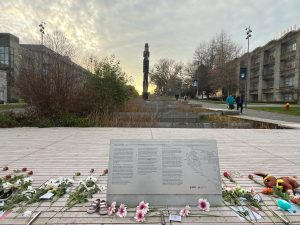
Place-Based
Place is an ecological and sociocultural construct that reminds us of our reciprocal relations with the natural environment that supports all life. Everything is somewhere. We value rootedness and respect that all knowledges are partial and situated in place and land.
Multi-Species/Kinship
Humans are deeply social and enmeshed or rooted in the natural world, where co-evolution with all living species has unfolded since time immemorial. We reject modern binaries (human and non-human, nature and culture, subject and object) and celebrate our kinship with all life on Earth and the flourishing that reciprocal relations can nurture.
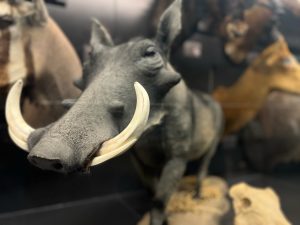
Embodiment
We believe in deep engagement and lived experience, where your body becomes entangled in the dynamic and flowing relations of any environment, and these experiences and relations are felt in visceral, spiritual and instinctual ways by all of your senses.
Decentring the Self and the Human
Anthropocentric ways of being, thinking and acting, with the self and humans as separate and at the centre, is at the heart of our sociocultural and planetary crises. We call for ways of thinking and being that are ethical, equitable, and position us as entangled in the web of relations that sustain us.
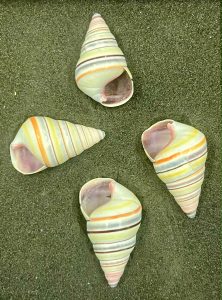
Ferality
Feral describes a situation in which an entity, nurtured and transformed by human activities, assumes a trajectory beyond human control. Humans could not survive without feral activity. In the Anthropocene, however, troubling ferality has started to accumulate, and is challenging the more-than-human habitability of the earth.
Encounter vs Spectacle
Too often, we are mesmerized by the spectacle of human agency and activity, and the multimedia evidence of our successes, failures and existential crises. Moving beyond spectacle, we invite deeper encounters and entanglements with place, land, kin and a pluriverse of perspectives on thinking, knowing and being.
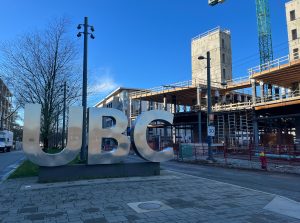
Layered/Contested History
With our complicity in settler immigration, we recognize the layers of complexity, nuance and contested history in the landscape. UBC campus is a site of dispossession advancing ongoing historical narratives that normalize and legitimize settler colonialism. We are committed to narratives that decolonize understandings of the past, present and possible futures.

Indigenous Futurisms
Indigenous futurisms challenge us to confront the impacts of colonization, consider the emotional and psychological aspects of this process, and support the resurgence of ancestral traditions for new narratives of Indigenous futurity. Without silencing discourse around historic and ongoing violence, it challenges us to imagine a world that de-centers the role of the colonizer toward a world where imagining possibilities stems from Indigenous epistemologies.
Pluriversality
We believe in an openness to epistemological and ontological variety. Ensuring a plurality of knowing, being and doing in the work we do is essential. This openness to a plurality of perspectives also acknowledges that the latter are situated in place and time, and are continuously changing and evolving.
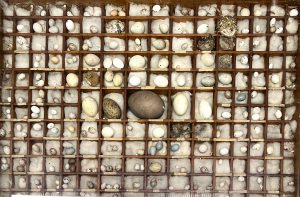
References
Chwałczyk, F. (2020). Around the Anthropocene in eighty names—considering the urbanocene proposition. Sustainability 12(11), 4458. https://doi.org/10.3390/su12114458
Feral Atlas. (2021). Stanford University. Accessed at: https://feralatlas.supdigital.org/?cd=true&bdtext=introduction-to-feral-atlas
Greenwood, D.A. (2013). A critical theory of place-conscious education. In R. Stevenson, M. Brody, J. Dillon, & A. Wals (Eds.), International handbook of research on environmental education (pp. 93-100). Routledge.
Haraway, D. (1988). Situated knowledges: The science question in feminism and the privilege of partial perspective. Feminist Studies, 14(3), 575-599.
Kimmerer, R.W. (2013). Braiding sweetgrass: Indigenous wisdom, scientific knowledge and the teachings of plants. Milkweed.
Vasconcelos, A.B., and Martin, F. (2018). Plurality, plurilogicality and pluriversailty: A literature review. A Review for the Creativity and Emergent Educational-futures Network (CEEN), University of Exeter.
Wylie, A., & Sismondo, S. (2015). Standpoint theory, in science. International Encyclopedia of the Social & Behavioral Sciences, 2nd edition, Volume 23, 324-330.